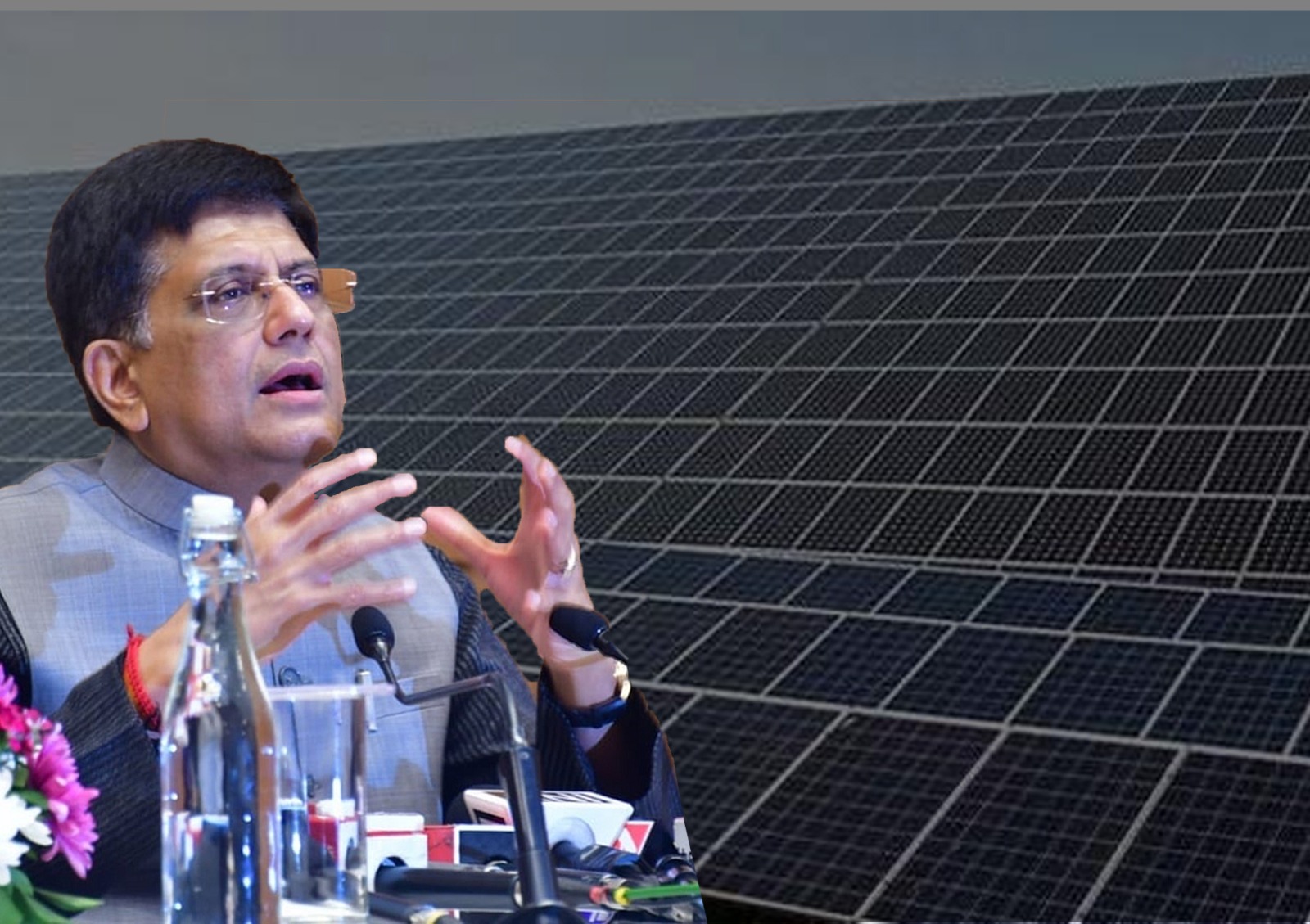
New Delhi, July 10:
India’s renewable energy sector is experiencing a remarkable change. Union Minister of Commerce and Industry Shri Piyush Goyal, speaking at the 11th India Energy Storage Week (IESW) 2025 in New Delhi, announced that the country has seen an incredible 4,000 percent growth in its installed solar capacity over the last decade. With renewable energy capacity now at 227 GW, India is becoming a leader in the global clean energy movement. The Minister noted that India may soon be the first G20 nation to meet its Nationally Determined Contributions (NDCs) under the Paris Agreement.
Emphasizing the local impact of clean energy, Shri Goyal mentioned Palli village in Jammu and Kashmir. This village has become India’s first carbon-neutral panchayat by adopting solar power and energy efficiency measures. He also praised the sustainability model of the IESW venue, Yashobhoomi Convention Centre, which includes rooftop solar installations, wastewater treatment, and efficient infrastructure.
The Minister discussed India’s remarkable progress in manufacturing solar components. He stated that the country’s solar photovoltaic module manufacturing capacity has grown 38 times, while solar cell capacity has increased 21-fold. Shri Goyal also highlighted the PM Surya Ghar Yojana, which plans to provide rooftop solar panels to one crore households nationwide, helping them become energy self-sufficient and reduce electricity bills. He added that the PM-KUSUM scheme is changing India’s agriculture sector by promoting the use of solar-powered pumps.
While commending India’s advances in renewable energy production, Shri Goyal emphasized that the next significant step must be in energy storage. He described technologies like batteries, pumped hydro, geothermal storage, and even nuclear energy as crucial for providing a stable, continuous green energy supply. The Minister pointed out that energy storage will be key to meeting India’s increasing electricity demands while moving away from fossil fuels.
In a crucial policy announcement, Shri Goyal revealed that the Union Cabinet has approved a ₹1 lakh crore Research, Development and Innovation Fund. This fund, he explained, would enhance India’s leadership in next-generation battery technologies, including solid-state and hybrid chemistries. Noting India’s cost advantage, he said this fund could potentially attract R&D investments of ₹6–7 lakh crore, positioning India alongside global innovation leaders.
Shri Goyal outlined a clear strategy for advancing India’s energy independence. He called for a strong effort in innovation focused on battery technologies and closed-loop supply chains. He stressed the need to build solid infrastructure for electric mobility, including charging and battery swapping systems. The Minister also emphasized the importance of supply chain resilience to decrease reliance on specific regions and to localize manufacturing. He stated that the vision must encompass the full value chain—from raw materials and cell components to battery packs, semiconductors, management systems, and recycling at the end of life.
He urged stakeholders to take advantage of opportunities in the clean energy sector and expand operations to make India globally competitive. The Minister reaffirmed India’s goal of reaching 500 GW of renewable energy capacity by 2030, noting that energy storage will be central to that effort. He echoed Prime Minister Narendra Modi’s sentiment that ensuring energy security for all citizens is not only a priority but a national responsibility.
Congratulating the India Energy Alliance and other partners for organizing the 11th edition of India Energy Storage Week, Shri Goyal recognized their role in bringing together experts in clean energy, green hydrogen, electric mobility, and storage solutions. He asserted that the future of energy depends on collaboration, innovation, and inclusivity, and that India is well positioned to lead this transition.
India Energy Storage Week has become a key platform for dialogue, partnerships, skill development, and policy innovation. It connects industry leaders, researchers, policymakers, and stakeholders from around the world to shape the future of energy storage and clean technology. The 2025 edition focused on aligning technological progress and industrial goals with India’s long-term climate and energy commitments.